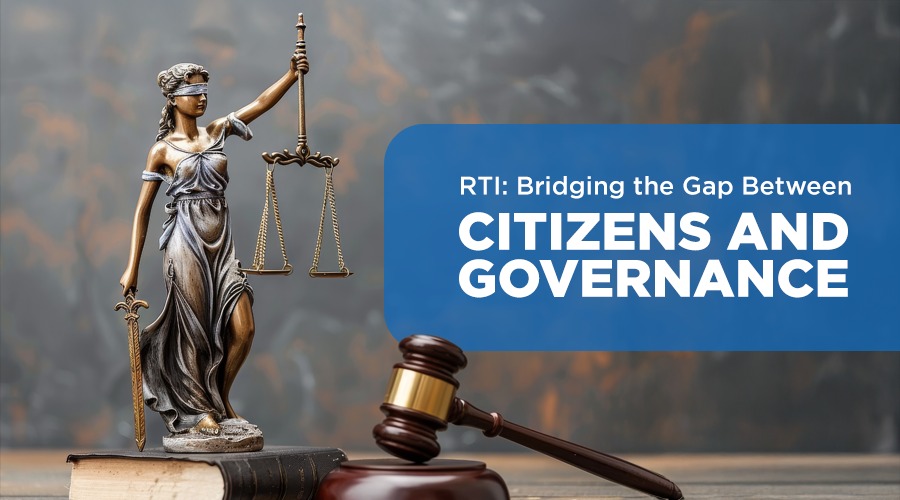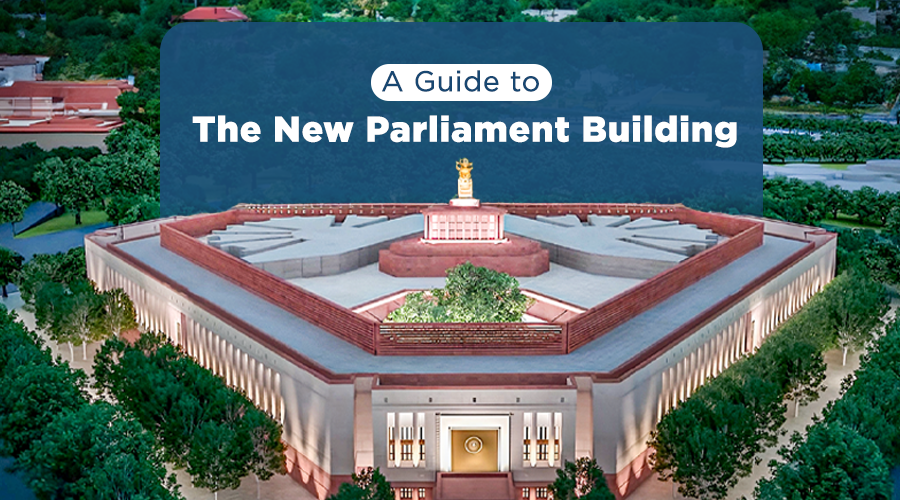The principle of ‘one person, one vote, one value’ underlines the Universal Adult Franchise (UAF). Since 1950, India has embraced the UAF, granting every citizen the right to vote and have a voice in the government, which is elected every five years. The most recent election took place in 2019, and as the five-year term draws to a close, the next general election is set to take place in 2024. During that time, the citizens of India will unite to cast their votes for a new government. This period is not only essential but also electrifying, marked by spirited campaigns, promises, and compelling speeches, all culminating in the voting day and the subsequent announcement of results.
To ensure a fairly run election, the Election Commission of India has established a model code of conduct, which both the contesting parties and candidates are expected to adhere to. The model code of conduct in an election ensures a level playing field, promoting fair play, decency, and maintaining a harmonious atmosphere. It prevents practices that may manipulate or pressurize voters, and fosters respect among contestants, safeguarding the democratic integrity of the electoral process.
The model code of conduct, as per the Election Commission of India is divided into 8 categories. (Election Commission of India, official website)
I. General Conduct:
Throughout the entire election procedure, certain guidelines are paramount for maintaining fairness and harmony. Political parties and candidates should steer clear of any activities that incite or exacerbate tensions based on caste, community, religion, or language. The focus of any criticism should be limited to a rival’s policies, programs, and past records, avoiding personal attacks or uncorroborated claims. It is essential to eschew appeals to caste or religious sentiments, and religious locations should never be utilized as campaign venues. Ethical standards must be adhered to, meaning corrupt practices such as bribing, intimidating voters, campaigning near polling stations, or influencing voters in the final 48 hours leading up to polling must be avoided. It’s vital to respect the right of every individual to a peaceful home environment, regardless of their political inclinations, meaning demonstrations should never be staged outside private residences. Before using someone’s property for campaign materials like banners or slogans, permission must be taken. Lastly, all parties and candidates should ensure their supporters don’t disrupt rival events, distribute unauthorized materials, or vandalize campaign materials.
II. Meetings:
To ensure public safety, maintain order during political gatherings, prevent disturbances, uphold local regulations, and foster a peaceful environment conducive to democratic expression during elections, several guidelines are essential. Organizers should notify the local police about the venue and time of a meeting or event well in advance, allowing them to make the necessary arrangements. Before planning an event, it’s imperative to check for any restrictive orders in place at the proposed venue, ensuring compliance or obtaining exemptions as needed. Additionally, prior to the event, securing the necessary permissions or licenses for equipment such as loudspeakers is crucial. In the event of disturbances, organizers should take help of the on-duty police officers rather than taking matters into their own hands.
III. Processions:
The guidelines for political processions are designed to ensure public safety, manage traffic, prevent clashes between different groups, maintain order, and encourage expressions of political sentiment that are respectful and non-inflammatory. Organizers are advised to plan out the procession’s start point, route, and endpoint in advance and adhere strictly to this plan. Before the event, it is essential to inform local police and familiarize oneself with any existing local restrictions or traffic regulations, ensuring compliance. Proper organization of the procession is crucial to prevent traffic blockages, and if the procession is lengthy, segmenting it is advised. Procession participants should always keep to the right side of the road and follow any police instructions. To avoid potential route overlaps and subsequent clashes, coordination with other political parties or candidates is essential. Additionally, participants in the procession should be discouraged from carrying items that could be potentially harmful. Lastly, public displays or burning of effigies representing political opponents should be strictly avoided.
IV. Polling Day:
These guidelines ensure a fair, peaceful, and orderly voting environment, free from coercion, influences, and disruptions, while also minimizing potential confrontations.Candidates and parties are hence, urged to cooperate fully with election officials to ensure a smooth, peaceful, and orderly polling process, allowing voters the freedom to exercise their rights without any disturbances. It’s advised that official workers be provided with appropriate badges or identity cards. Any identity slips handed out to voters should be plain, without symbols, candidate names, or party affiliations. The distribution or consumption of liquor should be strictly refrained from on the polling day and for the 48 hours preceding it. To prevent potential confrontations, political camps near polling booths should avoid gathering large crowds. Simplicity is key for these camps: displays of posters, flags, or any campaign materials are discouraged, and no food should be served. It’s crucial to work collaboratively with authorities, especially when adhering to vehicle restrictions on polling day, and prominently display the necessary permits on authorized vehicles.
V. Polling Booths:
Only voters, and officials with a valid pass from the Election Commission are permitted to enter the booths.
VI. Observers:
Official observers will be appointed by the Election Commission who can be approached for any queries and/or complaints.
VII. Party in Power:
The party currently holding power, be it at the Central or State level, must not exploit its official position for election campaigning. This entails a few critical guidelines:
Ministers should segregate official visits from election activities and abstain from using government machinery or personnel for campaign purposes. It’s essential that government assets, including transport means like aircrafts or vehicles and their personnel, aren’t leveraged to advantage the ruling party. Public spaces, including meeting places and helipads, must be accessible to all parties on equal terms, without monopolization by the ruling party. Likewise, government accommodations like rest houses shouldn’t be unduly occupied by the ruling party, nor used as campaign offices.
Advertisements funded by public money, especially during the election period, must avoid favoring the ruling party. After election announcements by the Commission, ministers and official authorities should refrain from making financial promises, initiating new projects, or making ad-hoc government appointments, which might sway voters. The election announcement date, usually set three weeks before the probable notification issuance, ensures fairness in the run-up. Ministers, whether from the Central or State Government, should only enter polling stations or counting places as candidates, voters, or authorized agents, not in their official capacity.
VIII. Guidelines on Election Manifestos:
In a judgment dated 5th July 2013 for the case SLP(C) No. 21455 of 2008 (S. Subramaniam Balaji Vs Govt. of Tamil Nadu and Others), the Supreme Court directed the Election Commission to formulate guidelines pertaining to the contents of election manifestos. This directive was to be executed in collaboration with all recognized political parties. The principles that would guide the creation of these guidelines are highlighted in the mentioned judgment-
(i) “Although, the law is obvious that the promises in the election manifesto cannot be construed as ‘corrupt practice’ under Section 123 of RP Act , the reality cannot be ruled out that distribution of freebies of any kind, undoubtedly, influences all people. It shakes the root of free and fair elections to a large degree”.
(ii) “The Election Commission, in order to ensure level playing field between the contesting parties and candidates in elections and also in order to see that the purity of the election process does not get vitiated, as in past has been issuing instructions under the Model Code of Conduct. The fountainhead of the powers under which the Commission issues these orders is Article 324 of the Constitution which mandates the Commission to hold free and fair elections.”
(iii) “We are mindful of the fact that generally political parties release their election manifesto before the announcement of election date, in that scenario, strictly speaking, the Election Commission will not have the authority to regulate any act which is done before the announcement of the date. Nevertheless, an exception can be made in this regard as the purpose of the election manifesto is directly associated with the election process”.
Following the directions of the Supreme Court, the Election Commission consulted National and State Political Parties regarding manifesto guidelines. Despite differing views, where some parties backed the guidelines and others viewed their creation of manifestos as a democratic right, the Commission recognized the importance of maintaining a level playing field during elections.
Under Article 324, the Constitution mandates the Election Commission to oversee Parliament and State Legislature elections. Respecting the Supreme Court’s directions and after party consultations, the Commission established the following manifesto guidelines for elections:
(i) Manifestos must align with the Constitution’s ideals and adhere to the Model Code of Conduct.
(ii) While the Constitution’s Directive Principles promote welfare measures, manifestos should steer clear of promises that could corrupt the election process or unduly influence voters.
(iii) For transparency and credibility, manifestos should explain the reasoning behind promises and indicate potential funding sources. Only feasible promises should be presented to voters.
4. Prohibitory period of Release of Manifesto during elections(s)
(i) In case of single phase election, the manifesto shall not be released during the prohibitory period, as prescribed under Section 126 of the Representation of the People Act, 1951.
(ii) In case of multi-phase elections, the manifesto shall not be released during the prohibitory periods, as prescribed under Section 126 of the Representation of the People Act, 1951, of all the phases of those elections.”




